Africa
Foreign ministers from the European Union (EU) and African Union (AU) on Wednesday vowed to strengthen cooperation for peace, security, and economic partnership between the two continents, stressing the urgency of moving from commitments to implementation.
Their pledge resulted from the third ministerial EU-AU meeting in Brussels, which the European Council said took stock of progress made since the last EU-AU Summit in February 2022.
A statement read out by the deputy chairperson of the AU commission said both parties "reaffirmed commitments to strengthening multilateralism and international cooperation as well as preserving the integrity of international law as the foundation for a just and fair global order."
"It is important to sustain the collective efforts to increase inclusiveness and effectiveness of the multilateral institutions with the UN at its core; in the pursuit of peace and security, we have underscored the necessity of our continued cooperation," the statement said.
The AU said both blocs also "committed to strengthening economic ties, promoting integrated and resilient markets, and encouraging investments that drive inclusive growth and create opportunities across both continents."
Wednesday's meeting, co-chaired by the EU foreign affairs chief Kaja Kallas and Tete António, Chairperson of the AU Executive Council, comes amid a rapidly changing geopolitical context and volatility.
In light of this, the EU's foreign policy chief reemphasised that the EU and its member states remain Africa's first and closest cooperation partners.
The last time foreign ministers from both continents met, Russia had not launched a full-scale invasion of its neighbour Ukraine, the war in Sudan had not begun, and France, a leading member of the 27-nation EU bloc, had not lost its influence in the Sahel, where its military departed from last year as Russia forged closer ties.
Kallas noted what she called "the fight of narratives everywhere", with "misinformation being one of the tools that Russia is using, especially in Africa."
"We have to fight the misinformation and foreign malign influence all the time, but it is, of course, increasingly hard," said Kallas. "But saying that does not mean that we have to give up. We still have to counter the narratives and fight the misinformation," she stressed.
Does the EU have a strategy for the Sahel?
While this commitment is of importance to Brussels, the same cannot be said for the affected countries in the Sahel, like Burkina Faso, Chad, Mali and Niger, where governments are establishing stronger bilateral relationships and deepening defence cooperation with the Kremlin at the expense of France.
Confronted by the pressing issues and changing dynamics, Kallas announced Brussels now has a new Special Representative for the Sahel region.
"We are also going to discuss the new Sahel strategy. That is why I also had many bilateral meetings today, also asking the African countries for their input. To really hear from the ground how they see this, what could help, what could be the developments there, and what we could do."
The cordial ambience on Wednesday was noticeable as the foreign ministers exchanged views on the EU-AU partnership and how to further strengthen cooperation in what is also a landmark year for the blocs.
While the EU is trying to find a solution to Russia's war on Ukraine and reimagine its approach to the Trump administration and the transatlantic alliance, Africa is looking to bring an end to the Sudan conflict and the deadly clashes and tensions in the eastern Democratic Republic of Congo (DRC).
According to Kallas, EU support to African partners through the European Peace Facility amounts to over €1 billion, and more than half of all EU Common Security and Defence Policy missions operate in Africa.
In March, the UN reported Sudan's civil war had created the world’s largest and most devastating humanitarian crisis, with over 30 million people needing aid this year, 16 million of them children trying to survive in dire conditions.
"We continue to support also the African Union in this (solving the crisis), when it comes to the mediation efforts, regionally. All these processes also in Africa have to be African-led and African-owned, even if there is mediation needed." Kallas said.
EU-AU to mark 25th anniversary
The Brussels meeting was attended by over 70 delegations, including more than 50 ministers, with some priorities emerging from the discussions, focusing on greater collaboration in critical raw materials, artificial intelligence, regional integration, mobility, and migration flows.
According to the AU, other renewed key commitments included confronting the impact of climate change, advancing food security, enhancing educational opportunities, and promoting cultural exchange between both continents.
Last year, the AU Commission, which represents 55 countries and nearly 1.5 billion people, became a full member of the G20. "We were the strongest advocate for the African Union's membership in the G20, for example," Kallas told the AU foreign ministers on Wednesday.
Later this year, the EU and AU will mark the 25th anniversary of what the European Council calls an "enduring and unique partnership."
The celebration slated for the seventh EU-AU Summit, which will be held in Africa, has not yet been announced.



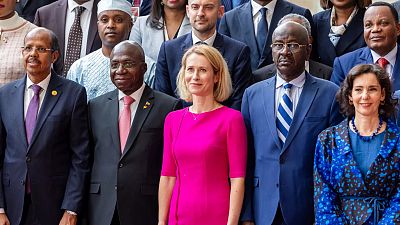

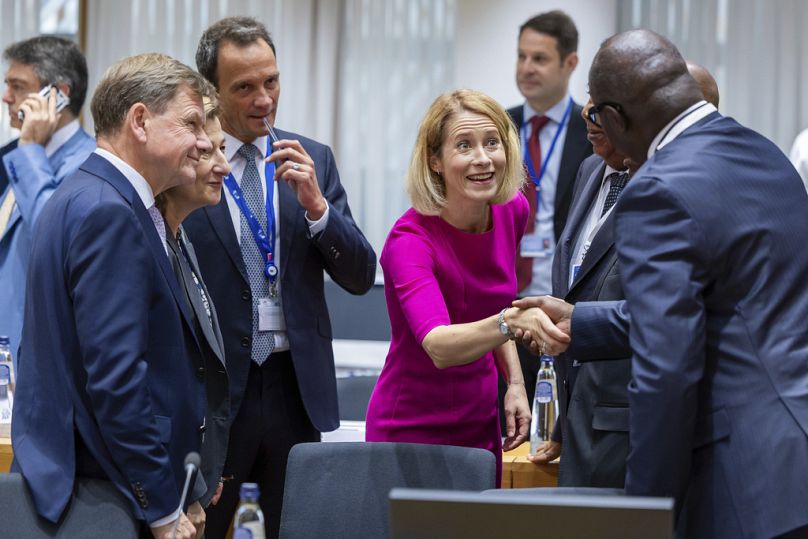
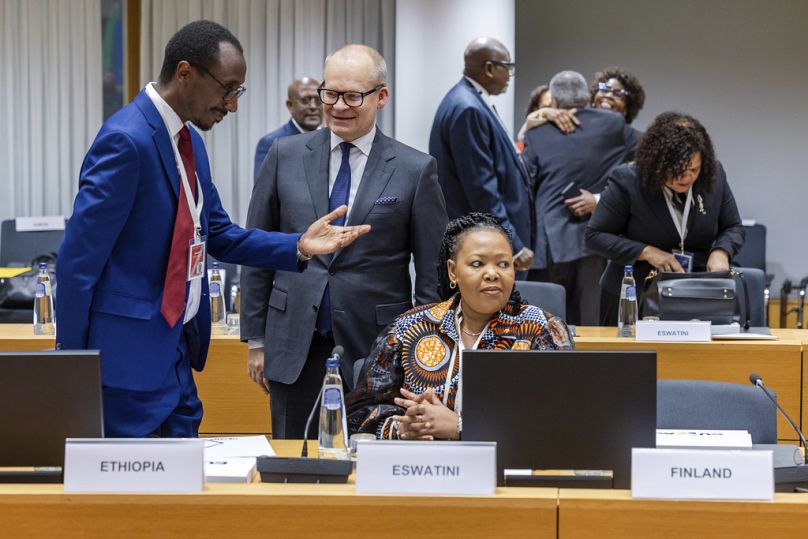
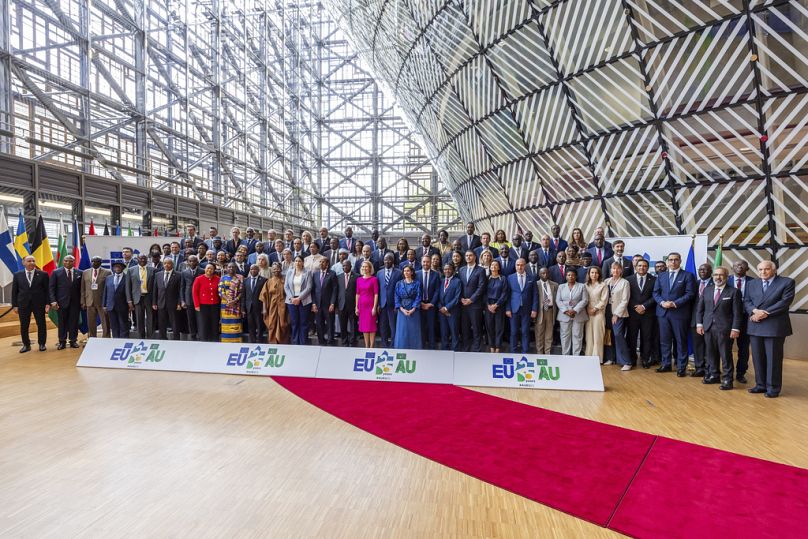
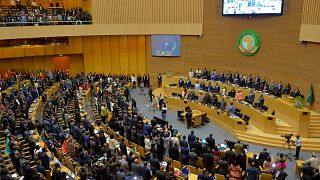
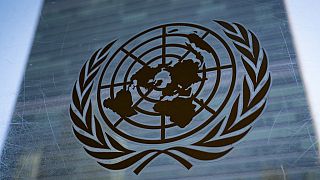



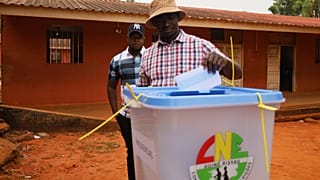
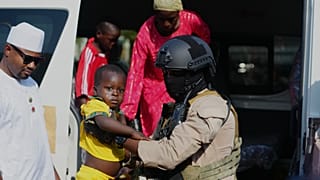
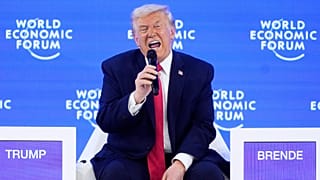
00:52
Putin signals willingness to repair ties with Europe
Go to video
US House passes 3-year AGOA extension but South Africa's inclusion is unclear
01:48
Egypt and EU agree on urgent need for second phase of Gaza ceasefire
01:00
French farmers protest EU Mercosur deal with tractors in Paris
01:07
African Union demands Israel reverse recognition of Somaliland
00:00
CAR's President Touadéra wins third-term in office, provisional results show